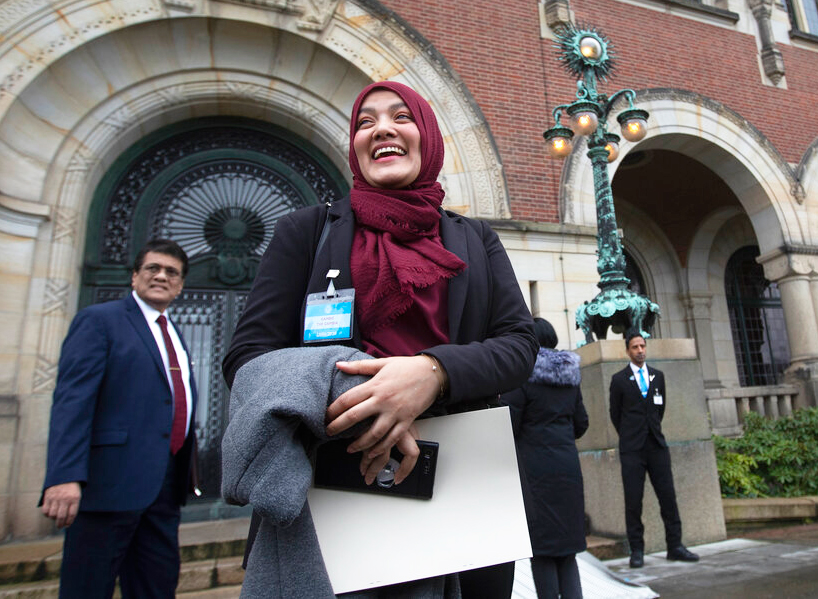The International Court of Justice on Thursday ordered Myanmar to take urgent measures to protect its Rohingya population from genocide, a ruling cheered by refugees as their first major legal victory since being forced from their homes.
A lawsuit launched by Gambia at the UN’s highest body for disputes between states accuses Myanmar of genocide against the Rohingya in violation of a 1948 convention. Mainly Muslim Gambia brought the case despite being located halfway around the world, on the argument that all nations have a universal legal duty to prevent genocide.
The court’s final decision could take years, and Thursday’s ruling dealt only with Gambia’s request for preliminary measures. But in a unanimous ruling by the 17-judge panel, the court said the Rohingya face an ongoing threat and Myanmar must act to protect them.
The ruling essentially put Myanmar under court oversight, telling it to submit regular reports to the tribunal explaining what steps it had taken.
The decision is the first international court ruling against Myanmar over its military’s brutal treatment of the Rohingya.
While the court has no enforcement power, any member of the UN can request action from the Security Council based on its rulings.
The case was argued last month by some of the world’s top human rights lawyers, with Myanmar’s civilian leader Aung San Suu Kyi personally attending hearings at The Hague to ask judges to dismiss it.
Moments before the court began reading its ruling, the Financial Times published an article by Suu Kyi, in which she said war crimes may have been committed against Rohingya Muslims but refugees had exaggerated abuses.
On Thursday at The Hague, the International Court of Justice presiding judge Abdulqawi Yusuf read out a summary of the judgment. Myanmar must “take all measures within its power to prevent all acts” prohibited under the 1948 Genocide Convention, and report back within four months, the judge said.
Myanmar must use its influence over its military and other armed groups to prevent violence against the Rohingya “intended to bring about its physical destruction in whole or in part”.
Rohingya activists, who had come from all over the world to the Hague, reacted with joy to the unanimous ruling which also explicitly recognised their ethnic minority as a protected group under the Genocide Convention.
“That is something we have been fighting for a long time: to be recognised as humans, the same as everyone else,” Yasmin Ullah, a Canada-based Rohingya activist said. Majority Buddhist Myanmar generally refuses to describe the Muslim Rohingya as an ethnic group and refers to them as Bangladeshi migrants.
More than 730,000 Rohingya fled Myanmar after a military-led crackdown in 2017, and were forced into squalid camps across the border in Bangladesh. UN investigators concluded that the military campaign had been executed with “genocidal intent”.
In camps in Bangladesh where they have fled, Rohingya refugees hovered over mobile phones to watch the judgment.
“For the first time, we have got some justice,” said Mohammed Nur, 34.“This is a big achievement for the entire Rohingya community.”
Rohingya still living inside Myanmar contacted by phone said they hoped the ruling would force the country to improve their situation. “We need protection,” said Tin Aung, a Rohingya leader living in Myebon township in central Rakhine state, where Muslims have been confined to camps since violence in 2012.
“The chances of Aung San Suu Kyi implementing this ruling will be zero unless significant international pressure is applied,” said Anna Roberts, executive director of the rights group Burma Campaign UK.
A Myanmar government spokesman and two military spokesmen did not answer calls from Reuters seeking comment.











